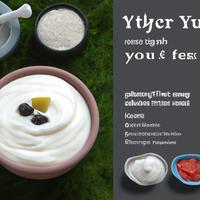
1 serving (150 grams) contains 110 calories, 19.0 grams of protein, 0.2 grams of fat, and 8.0 grams of carbohydrates.

Log this food in SnapCalorie

Nutrition Information
Calories |
176.0 | ||
|---|---|---|---|
% Daily Value* |
|||
| Total Fat | 0.3 g | 0% | |
| Saturated Fat | 0.2 g | 1% | |
| Polyunsaturated Fat | 0 g | ||
| Cholesterol | 8.0 mg | 2% | |
| Sodium | 96 mg | 4% | |
| Total Carbohydrates | 12.8 g | 4% | |
| Dietary Fiber | 0 g | 0% | |
| Sugars | 9.6 g | ||
| protein | 30.4 g | 60% | |
| Vitamin D | 0 mcg | 0% | |
| Calcium | 240 mg | 18% | |
| Iron | 0.2 mg | 1% | |
| Potassium | 240 mg | 5% | |
* Percent Daily Values are based on a 2,000 calorie diet. Your daily values may be higher or lower depending on your calorie needs.
Food Attributes
Source of Calories
About Icelandic skyr yogurt
Icelandic skyr yogurt is a creamy, protein-rich dairy product that has been a staple in Icelandic cuisine for centuries. Made from skimmed milk and cultures, skyr is strained extensively, resulting in its signature thick texture. Traditionally, it’s considered a type of cheese rather than yogurt, though it’s commonly enjoyed as a yogurt alternative worldwide. Skyr is naturally high in protein, low in fat, and low in sugar when unsweetened, making it a healthy choice for those seeking balanced nutrition. It’s also rich in calcium and probiotics, which support bone health and digestion. However, flavored varieties may contain added sugars, so it’s important to check labels for nutritional content. Whether enjoyed on its own, topped with fresh fruit, or used in recipes, skyr delivers both nourishment and a taste of Iceland’s culinary heritage.



